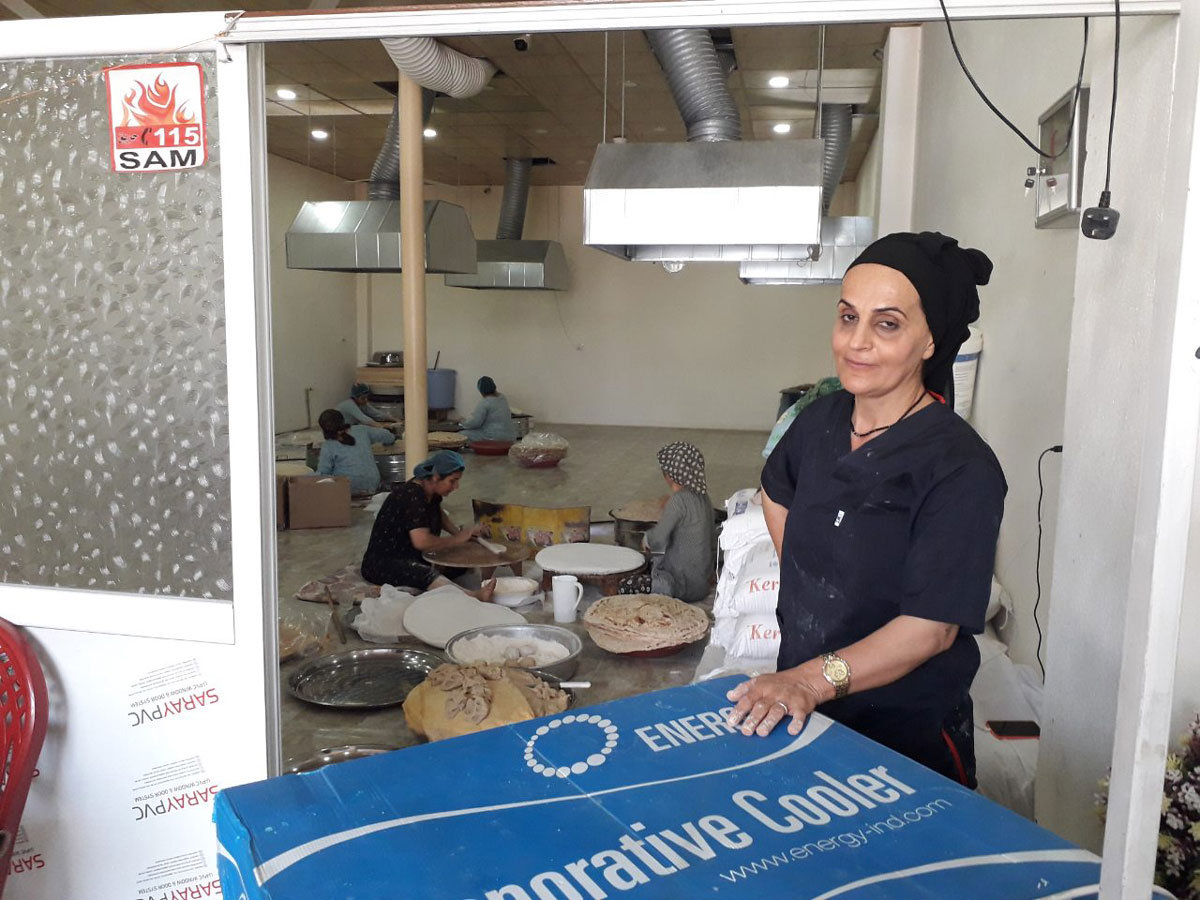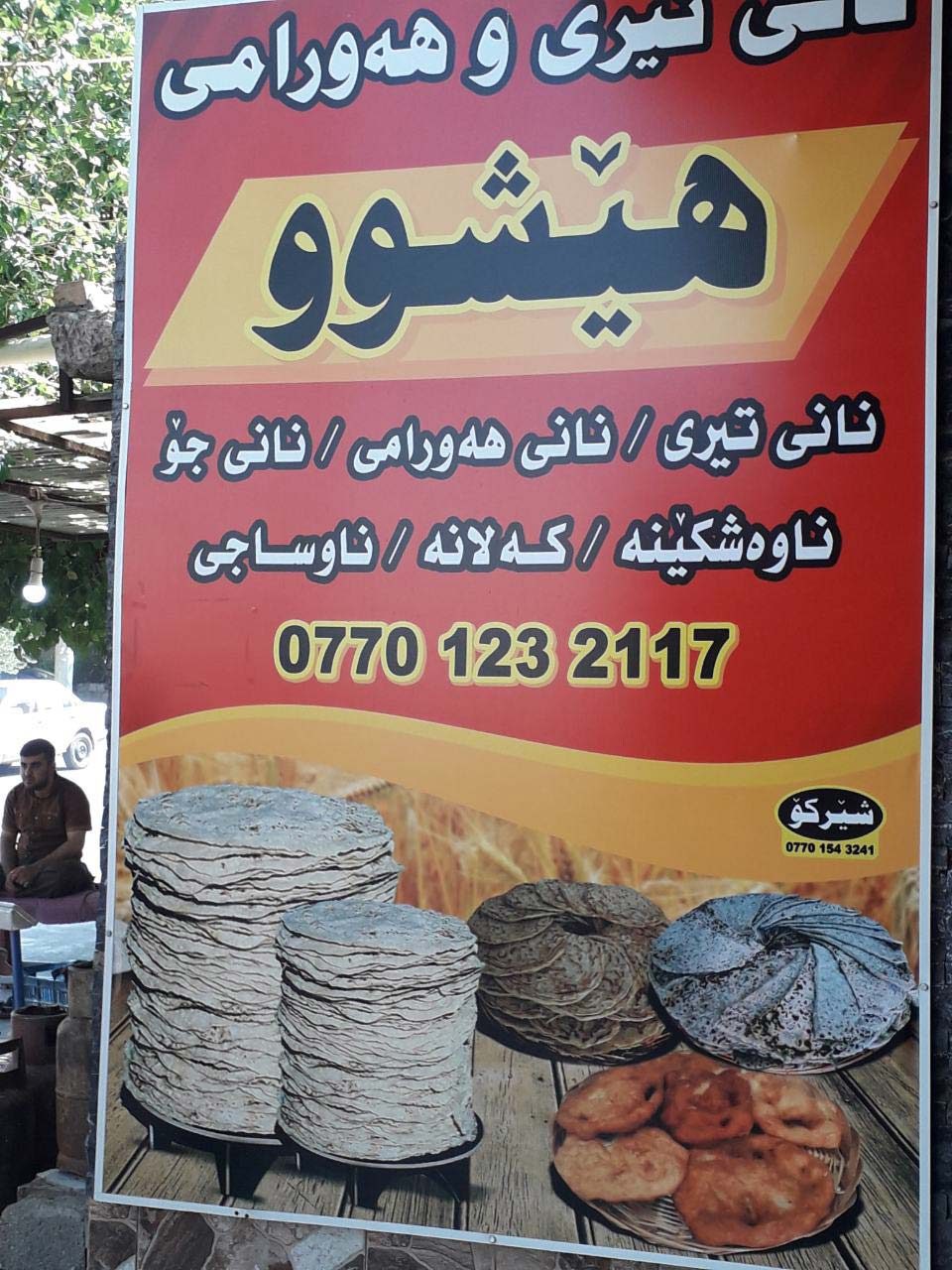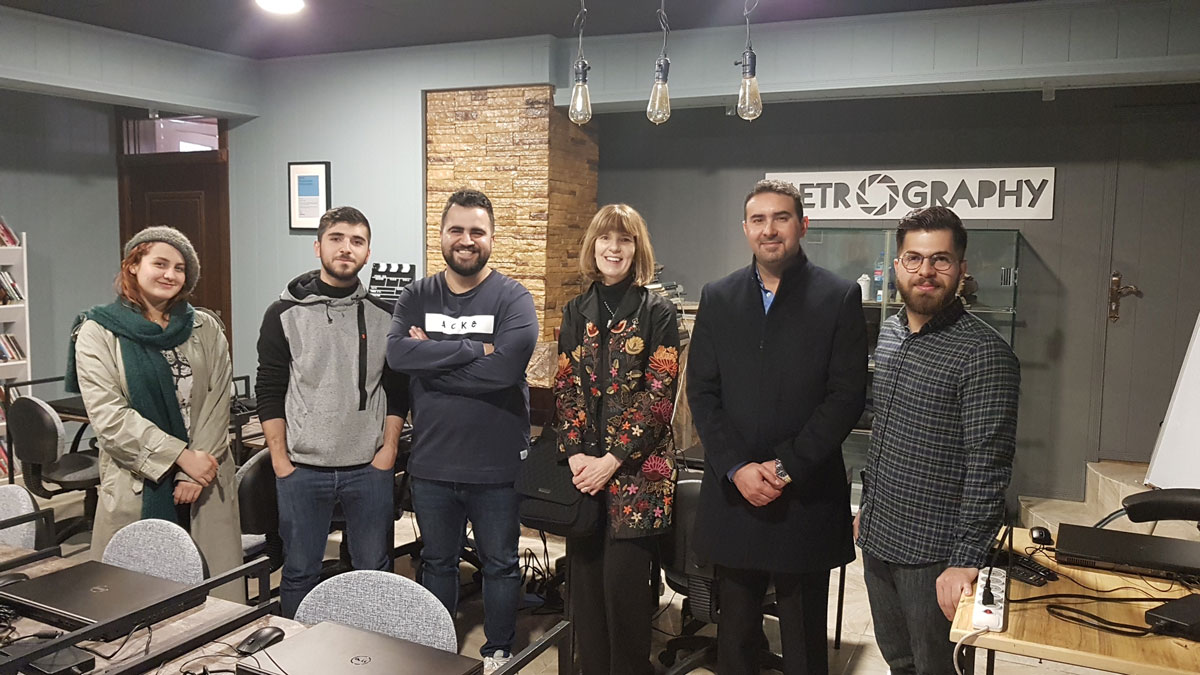Ahmed Najm is 28 years old, a photographer, and an Iraqi entrepreneur. He’s also the recipient of a loan from Relief International.
The agency he runs, Metrography, is the first and only independent press photo agency in Iraq. Metrography was founded by Ahmed’s brother, Kamaran Najm, who was kidnapped an armed group in June 2014. Since that time, Ahmed has carried forward the agency’s mission of telling stories through Iraqi eyes, a viewpoint that he felt was largely missing in the many years of global news coverage about the war in his country.
When Relief International first met Ahmed in 2014, Iraq was in the throes of a civil war. The tragedies of the ongoing conflict fell close to home for Ahmed, whose brother, Kamran, disappeared in June of that year as he was photographing an offensive in Kirkuk.
At that time, Metrography had been in business for three years and Ahmed had a staff of four people working out of one small office. “When I first met the guys from this agency I could feel their energy,” said Sameh Al-Muqdadi, Managing Director for Relief International in Iraq. “I could tell they had the willingness, the skills, and the potential to achieve their business goals. All that was missing was the financial support.”
Relief International’s first loan to Metrography was for $25,000, the standard amount we provide to small businesses. Two years later, with the loan repaid in full, we made a second loan for the same amount.
Ahmed primarily used the loans to make capital investments, buying assets such as cameras and laptops so that his team could get to the front lines and capture Iraq’s untold stories. “Our loans were a springboard for the agency, and within a few years the magic happened and they saw a lot of growth,” says Sameh. “A lot of journalists who are not from Iraq cannot gain access to the areas they cover.”
Five years after our first investment, Metrography has expanded to include more than 70 photographers working in five offices and numerous training centers across Iraq. Ahmed continues to work as a photo storyteller and safety trainer, and has been training independent photojournalists in Iraq, Iran, and Turkey during the fight against the Islamic State. Ahmed has also been training 15 female photojournalists, encouraging them to tell the stories that remain inaccessible to male photographers due to cultural and traditional boundaries.
Metrography’s photographers have captured international attention, and are now getting assignments from outlets including The Washington Post, The Times of London, and Der Spiegel in Germany.
I could tell they had the willingness, the skills, and the potential to achieve their business goals. All that was missing was the financial support."
Smart Investments, Impactful Results
For more than a decade, Relief International has provided over $60 million in credit products tailored specifically to small businesses and low-income households in Iraq that are unable to access financing through traditional banks.
“Microfinance is still a new model for doing business in Iraq. There are no financial institutions here that will help small businesses or individuals that lack guarantees and credit history. Our services are filling a much-needed gap,” explains Sameh.
Relief International has provided thousands of clients with the boost they needed to achieve their business’s potential. Through our lending program, financing packages of $2,500 are available for microbusinesses and $25,000 for small businesses. Recipients must be an Iraqi citizen aged 16 or older.
Our first branch was founded in Amara, a major trading center for the surrounding agricultural area that’s known for woven goods and silverware. “We didn’t wait in the office for people to come to us,” says Sameh. “We promoted ourselves, sending our teams to the market to talk to sellers about small loans. Over time, we gained a good reputation and it got easier to connect with new clients.”
Relief International’s microfinance program expanded to include four other branches in Karbala, Kalar, Suleimaniyah, and Kut. Word of mouth has continued to bring in new clients like Banaz Omer Rasheed, who heard about the loan opportunities from a friend.
Banaz’s Hisho Bakery

Banaz Omer Rasheed, loan recipient and owner of Hisho Bakery.
© RI

Banaz Omer Rasheed, 50, lives in Sulimaniya and is a widowed mother of four. She’s been the sole provider for her family since she was 21. Banaz started a bakery from home to earn an income, and discovered over the years that there was great demand in the local market for the traditional bread that was her specialty.
Recognizing that she needed an infusion of cash to grow her business, she applied for a $1,200 loan from Relief International in 2010. Our team guided her through the process, and Banaz was successful. As with all our clients, once she received the loan we supported her with training on developing a market strategy, a business plan, and ways to maximize her savings.
“We worked side-by-side for years and built trust with Banaz,” shares Sameh. “She paid back the first loan in full, and we were happy to provide her with a second. We are now on our seventh loan cycle, and have invested a total of $16,800 in helping Banaz grow her business.”
Banaz’s Hisho Bakery is now considered one of the best in the Sulimaniya. She’s moved from her home to a storefront in town and employees 8 other women full-time.






